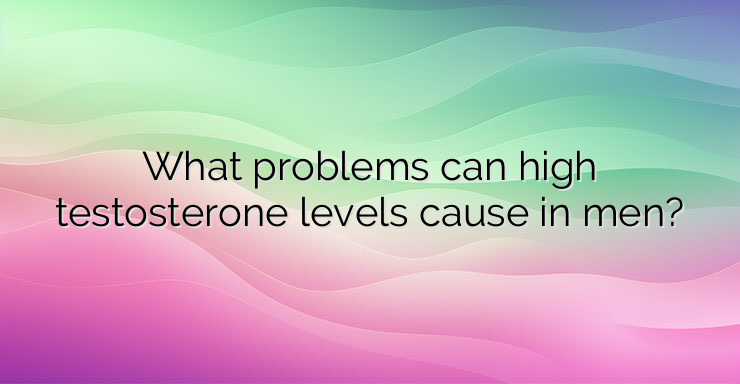Testosterone is a sex hormone that is produced in the testes in men. Testosterone levels are important in promoting puberty, the development of secondary sexual characteristics, normal male development and fertility. During puberty (the teenage years), testosterone helps boys develop masculine traits such as body and facial hair, a deeper voice, and more muscle mass. Testosterone is found in much higher levels in men, but it is also present in women’s bodies, in much lower concentrations. And balanced testosterone levels are necessary for optimal health. Common symptoms of high testosterone levels in men are: Acne. Acne can be a sign of high hormone levels when there is no other apparent cause, such as excessive sweating from exercise; Changes in blood pressure. High blood pressure (hypertension) and low blood pressure (hypotension) due to high hormone levels can lead to – dizziness, headache, fatigue, nausea, fainting; Sexual health. Changes in sexual health can be a sign of abnormal testosterone levels. This can include problems getting or keeping an erection, also called erectile dysfunction, decreased desire for sex, and a lower than normal sperm count in the semen; Hair problems. Changes in body and head hair may also be seen, such as excessive body hair growth and early male pattern baldness; Mood problems. Mood changes such as irritability, anxiety or depression may be experienced Other conditions and problems due to high testosterone levels may include: Chest pain; Breathing problems; Slurred or difficult speech; Polycythemia vera, caused by overproduction of red blood cells; Lower levels of HDL (“good”) cholesterol; Heart attack; Swelling of the arms or legs (peripheral oedema); Stroke; Abnormal growth of the prostate gland (benign prostatic hyperplasia or BPH); Sleep apnea or other sleep disorders that make breathing difficult during sleep; Deep vein thrombosis, a blood clot in a vein of the body; Pulmonary embolism, a blood clot in a blood vessel of the lungs References: 1. Cleveland Clinic. Sexual hormone disorders: Descriptions 2. Harvard Medical School – Harvard Health Publishing. Testosterone — what it does and doesn’t do 3. Endocrine Society. Reproductive Hormones


Leave a Reply